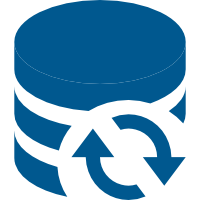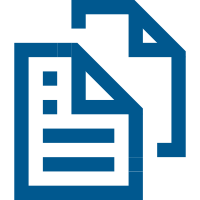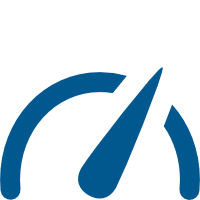The call for industry papers is closed. Information on the accepted papers is provided here.
The IEEE International Requirements Engineering Conference (RE'14) is the premier international forum for industrial practitioners, researchers, educators, and students to present and discuss the most recent innovations, experiences, and concerns in the discipline of requirements engineering.
We invite industrial practitioners and researchers with significant industry experience to share first-hand experiences from industry. At RE'14, you can highlight challenges you've experienced in your work and discuss ideas and new innovations in the field of requirements engineering with fellow practitioners and researchers alike. You will have the opportunity to share interests and expectations and influence the development of the field. RE'14 will give you the opportunity to join the global network of requirements engineering experts across industry and academia.
Topics of Interest
Consistent with the RE'14 theme of Innovation - innovation in requirements engineering to explore new ideas and breakthroughs in the discipline, and innovation through requirements engineering to highlight how best practices in the discipline enable innovative work in product development - we seek innovative work from our practitioner community in industry.
Contributions addressing all aspects of requirements engineering and business analysis in industrial, governmental, or any practical context are welcome. Topics include, but are not limited to:

Pragmatic requirements engineering: process efficiency, good-enough requirements, agile and lean approaches

Collaboration with stakeholders: stakeholder management, creativity, requirements elicitation and negotiation

Large-scale requirements engineering: complex systems, product lines, value chains, software ecosystems

Requirements specification: natural language, model-driven approaches, formal techniques

Requirements engineering for user experience, including ethnography, design, and usability

Creativity, innovation, and requirements engineering

Global requirements engineering: dealing with geographically-dispersed, and culturally-divergent requirements efforts

Performance improvement: best practices, measurement, process development

Industry and research collaboration: learning from practice, training practitioners, technology transfer

Tools for requirements engineering: requirements modeling, requirements management, social networks
Contributions
We invite original submissions of high quality papers in two categories:
- Problem statements present problems or challenges encountered in practice.
- Experience reports present successes or failures encountered in practice.
Papers can be submitted in two formats:
- Full papers (6-10 pages) will appear in the IEEE digital library and be presented by the authors.
- Short papers (up to 2 pages) will appear in locally printed proceedings and be presented by the authors.
A limited mentoring program is available for practitioners new to authoring and submitting papers to conferences. Please contact Sarah C. Gregory for more information. All submitted papers will be evaluated through a competitive peer-review process. Accepted papers may, in the judgment of the reviewers and track co-chairs, require editing for clarity prior to publication and presentation.
In order to support you in the paper writing task, we have devised generic "how-to" guidelines for paper writing. These guidelines are by no means perfect, and might not fit all types of papers, but can be used as inspiration for the more experienced, and as more of a guide for the inexperienced paper writer. Click here to view the guide (PDF format).
Submission Instructions
Papers must describe original work that has not been previously published or submitted elsewhere. Submissions must be written in English and formatted according to the IEEE formatting instructions.
Conference-Specific Requirements
The format of your paper must strictly adhere to the IEEEtran Proceedings Format. There are several versions of the IEEE style. Please make sure you use exactly the versions that are linked below.
LaTeX users: please use the LaTeX class file IEEEtran v1.8 (CTAN archive) and the following configuration (without option 'compsoc' or 'compsocconf'):
\documentclass[conference]{IEEEtran}
Word users: please use this Word template (see also the corresponding PDF file for comparison).
General Formatting
Make sure your paper:
- does not exceed the page limit specified,
- is in PDF format,
- is in letter page size,
- does not have page numbers,
- has all fonts embedded in the PDF file,
- uses only scalable font types (like Type 1, TrueType) --- bit-mapped font types (like Type 3) are not acceptable,
- has all figures embedded in vector graphics (if not possible, use a high-resolution bitmap format of at least 300 dpi; do not use JPG, but a lossless format like PNG or GIF),
- has all text in figures and tables large enough and readable when printed,
- has a caption for every figure or table,
- has the title and all headings properly capitalized (cf. Section Help),
- has no orphans and widows (cf. Section Help), and
- does not use footnote references in the abstract.
The use of color in regular body text (e.g., in order to emphasize words, URLs, or citations) is discouraged due to reduced readability and greyscale printing. The use of color is allowed in figures, tables, listings, and in non-body text, such as source code, XML snippets, etc.
Accepted full papers will be published as IEEE CS Press Conference Proceedings. All authors of all accepted contributions will be asked to complete an electronic IEEE Copyright form and will receive further instructions for preparing their camera-ready versions from Conference Publishing Solutions. Acceptance of a paper implies that one of the authors registers for the conference to present the submission; failure to do so by the early registration date will result in the paper being withdrawn from the conference proceedings. Conference proceedings will be submitted for inclusion into the IEEE Xplore Digital Library. IEEE reserves the right to exclude a paper from distribution after the conference (e.g., by not placing it into the IEEE Xplore Digital Library) if the paper is not presented at the conference.
Submission Link
Click here to submit abstract and full paper.
Key Dates
| Abstract Submission | Monday, March 03, 2014 |
| Full Paper Submission | Monday, March 10, 2014 |
| Paper Notification | Monday, May 19, 2014 |
| Camera Ready Due | Friday, June 20, 2014 |
All deadlines are 23:59 Baker Island Time.
Contact
Any inquiries regarding the industry track can be directed to the co-chairs of the industry track: Sarah C. Gregory and Marjo Kauppinen.
Entypo pictograms by Daniel Bruce - www.entypo.com
DefaultIcons by interactivemania - www.interactivemania.com






 Download Call
Download Call